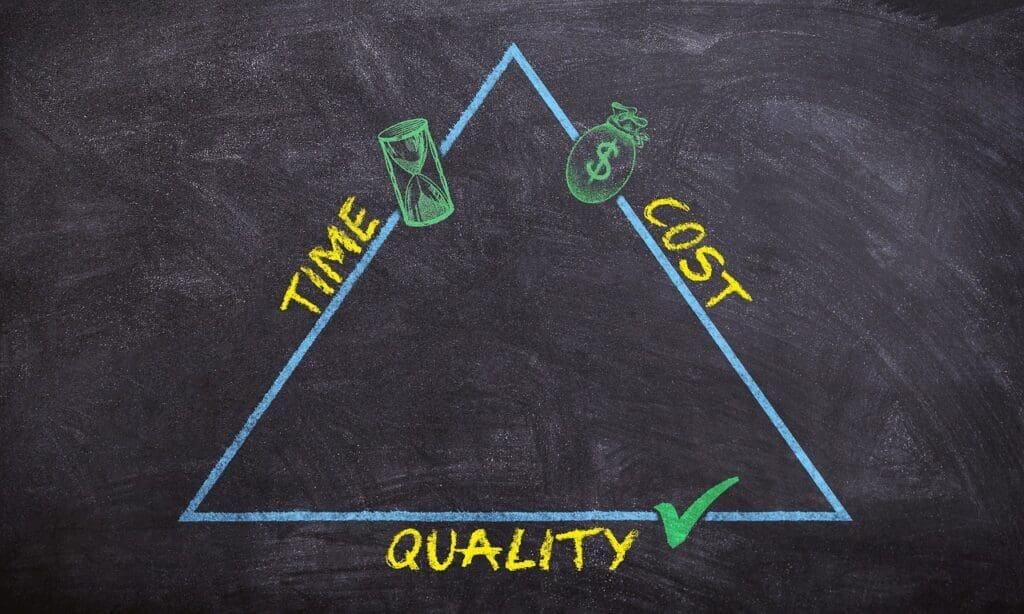In today’s fast-paced world, mastering time management is essential for achieving your goals efficiently and effectively. Many people struggle with managing their time, which leads to stress, missed deadlines, and unaccomplished objectives. However, by implementing simple yet powerful strategies, you can take control of your time, increase productivity, and make significant progress towards your goals. In this article, we will explore various techniques and actionable steps that will help you master time management and achieve your goals faster.

I. Introduction
Time management is the process of planning and organizing your time to accomplish specific tasks and goals. It involves setting priorities, allocating resources, and utilizing strategies to make the most of your available time. By developing effective time management skills, you can enhance productivity, reduce stress, and create a better work-life balance.
II. Understanding the Importance of Time Management
A. Defining Time Management
Time management is the ability to use your time efficiently and effectively to complete tasks and achieve desired outcomes. It involves making conscious choices about how you allocate your time and avoiding time-wasting activities.
B. Benefits of Effective Time Management
Effective time management offers numerous benefits, including:
- Increased productivity: Properly managing your time allows you to accomplish more in less time.
- Reduced stress: When you have a clear plan and prioritize tasks, you can minimize stress and anxiety.
- Improved focus: Time management helps you stay focused on important tasks and avoid distractions.
- Enhanced work-life balance: By managing your time effectively, you can allocate time for both work and personal activities, leading to a better overall balance.
III. Setting Goals and Prioritizing Tasks
A. Identifying Your Goals
The first step in mastering time management is to identify your goals. Clearly define what you want to achieve in different areas of your life, such as career, health, relationships, and personal development.
B. Breaking Down Goals into Smaller Tasks
Once you have identified your goals, break them down into smaller, manageable tasks. This approach makes your goals more attainable and allows you to focus on specific actions.
C. Prioritizing Tasks
Prioritization is crucial for effective time management. Priortize tasks and activities based on significance and urgency and try to do the challenging tasks first. Use techniques like the Eisenhower Matrix to categorize tasks based on their importance and urgency.

IV. Creating a Time Management Plan
A. Assessing Your Current Time Usage
To effectively manage your time, it’s important to understand how you currently spend it. Track your activities for a few days and analyze where your time goes. This awareness will help you identify areas where you can make improvements.
B. Allocating Time for Each Task
Make a habit scorecard and allocate specific time periods to each task. Create a schedule or use time management tools like calendars and productivity apps to help you stay organized.
C. Using Time Management Tools and Techniques
There are numerous time management tools and techniques available to assist you. Experiment with different approaches, such as the Pomodoro Technique for enhancing focus or time blocking for efficient task management.

V. Avoiding Time Wasters and Distractions
A. Identifying Common Time Wasters
Certain activities consume valuable time without contributing to your goals. Common time wasters include excessive social media usage, aimless web browsing, unnecessary meetings, and poor time estimation.
B. Overcoming Procrastination
Procrastination is a major obstacle to effective time management. Overcome it by breaking tasks into smaller steps, setting deadlines, using positive reinforcement, and eliminating distractions.
C. Dealing with Distractions
Distractions can significantly impact your productivity. Minimize them by creating a conducive work environment, silencing notifications, and practicing mindfulness techniques to refocus your attention.
VI. Developing Effective Habits for Time Management
A. Establishing a Routine
Establishing a consistent routine helps you develop productive habits. Set specific times for regular activities like waking up, exercising, working, and relaxing.
B. Practicing Time Blocking
Time blocking involves dedicating specific time blocks to specific tasks. This technique helps you stay focused and prevents tasks from overlapping or taking longer than necessary.
C. Cultivating Focus and Concentration
Enhance your ability to concentrate by eliminating distractions, practicing deep work techniques, and incorporating mindfulness exercises into your daily routine.
VII. Strategies for Enhancing Productivity
A. Adopting the Pomodoro Technique
The Pomodoro Technique involves working in short, focused bursts followed by short breaks. This method helps improve concentration and maintain productivity throughout the day.
B. Utilizing the Eisenhower Matrix
The Eisenhower Matrix can prove to be an essential tool when it comes to enhancing productivity. It categorizes tasks into four quadrants based on their urgency and importance, allowing you to focus on tasks that align with your goals.
C. Implementing the 80/20 Rule
The 80/20 Rule, also known as the Pareto Principle, states that 80% of your results come from 20% of your efforts. Identify the most impactful tasks and dedicate your time and energy to them.
VIII. Overcoming Time Management Challenges
A. Managing Stress and Overwhelm
Time management challenges often lead to stress and overwhelm. Practice stress management techniques, such as exercise, meditation, and time for self-care, to maintain a healthy mindset.
B. Delegating Tasks and Seeking Support
Learn to delegate tasks that can be handled by others. Seek support from colleagues, family, or friends when necessary. Effective delegation frees up time for more critical activities.
C. Learning to Say No
Saying no to nonessential tasks and commitments is crucial for effective time management. Prioritize your own goals and obligations, and politely decline requests that don’t align with them.
IX. Monitoring Progress and Making Adjustments
A. Tracking Your Time
Continuously monitor and track how you spend your time. Use time management tools, apps, or simple spreadsheets to record your activities and identify patterns or areas for improvement.
B. Evaluating Your Results
Regularly evaluate your progress towards your goals and assess the effectiveness of your time management strategies. Celebrate achievements, identify areas for growth, and make necessary adjustments.
C. Making Necessary Adjustments
Flexibility is key in time management. If certain strategies or techniques aren’t working for you, don’t hesitate to adjust or try alternative methods. Adaptation is crucial for long-term success.
X. Conclusion
Mastering time management is a journey that requires dedication, self-awareness, and consistent effort. By implementing the strategies outlined in this article, you can take control of your time, increase productivity, and achieve your goals faster. Remember, effective time management is not about doing more in less time but rather about prioritizing and focusing on what truly matters.
FAQs
Q1. How can time management benefit my personal life?
Time management helps create a better work-life balance, reduces stress, and allows you to dedicate time to activities you enjoy, such as hobbies, spending time with loved ones, and self-care.
Q2. What are some common time wasters to avoid?
Common time wasters include excessive social media usage, aimless web browsing, multitasking, ineffective meetings, and procrastination.
Q3. How can I overcome procrastination?
Overcome procrastination by breaking tasks into smaller steps, setting deadlines, eliminating distractions, and using motivational techniques like rewarding yourself for completing tasks.
Q4. What are some effective time management tools?
Effective time management tools include calendars, to-do lists, productivity apps, time tracking software, and project management tools.
Q5. How often should I evaluate my time management plan?
It’s recommended to evaluate your time management plan regularly, ideally every few weeks or monthly. This allows you to identify what’s working, what needs improvement, and make necessary adjustments to stay on track.





















